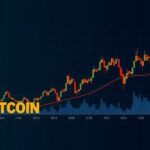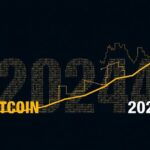Eurozone Business Activity Experiences Notable Decline Post-Olympics
Summary
The Eurozone witnessed a decline in business activity in September for the first time in seven months, largely due to a slowdown in France after the Olympic Games. The S&P Global PMI fell to 48.9, indicating economic contraction. Both Germany and France contributed significantly to this decline, leading to concerns about stagnation and prompting discussions regarding potential interest rate cuts by the European Central Bank.
In September, the Eurozone experienced its first decline in business activity in seven months, primarily attributed to a slowdown in France following the conclusion of the Paris Olympic Games, according to a recent report. The S&P Global purchasing managers’ index (PMI), which serves as a crucial indicator of economic health, decreased to 48.9 in September, a notable drop from 51 in August. A PMI reading below 50 signifies economic contraction. Cyrus de la Rubia, Chief Economist at Hamburg Commercial Bank, stated, “The eurozone is heading towards stagnation. After the Olympic effect had temporarily boosted France, the eurozone heavyweight economy, the Composite PMI fell in September to the largest extent in 15 months. Considering the rapid decline in new orders and the order backlog, it does not take much imagination to foresee a further weakening of the economy.” The survey highlighted that both Germany and France, the two leading economies within the Eurozone, chiefly contributed to this decline. France’s private sector, which had seen temporary growth due to the Olympics, reverted to contraction, while German business activity experienced its most significant drop since February. Andrew Kenningham, Chief Europe Economist at Capital Economics, remarked, “The big decline in eurozone PMI suggests that the economy is slowing sharply, that Germany is in recession, and that France’s Olympics boost was just a blip.” He further pointed out that with the newly established minority government in France planning significant fiscal tightening, the outlook for growth appears increasingly grim. Additionally, the manufacturing sector across the Eurozone reported declines for the eighteenth consecutive month. De la Rubia noted, “Manufacturing is getting messier by the month. Looking ahead, the sharp drop in new orders and companies’ increasingly bleak outlook for future output suggest that this dry spell is far from over.” This downturn in business activity may prompt further discussions regarding a potential interest rate cut from the European Central Bank (ECB) in October. The ECB recently reduced its deposit rate to 3.50%, a decision influenced by the prior rapid rate increases intended to mitigate rising consumer prices, which are now trending back towards the target of 2%.
The decline in business activity within the Eurozone has surfaced as a significant concern, particularly following the temporary economic boost some sectors received from the Paris Olympic Games. Business sentiment and productivity are often interconnected with public events such as the Olympics, but the recent downturn indicates a more profound underlying economic issue. The S&P Global PMI serves as an essential metric for gauging economic health, with a reading below 50 suggesting contraction. Analysts are increasingly worried that the Eurozone might be headed towards stagnation, with implications for monetary policy decisions by the European Central Bank, particularly in light of the recent rate cuts that sought to address inflationary pressures.
In conclusion, the Eurozone’s business activity has seen a troubling decline in September after experiencing a brief uplift from the Olympic Games. The downturn highlights significant weaknesses in the economies of both Germany and France, raising concerns about future growth and economic stability. Analysts suggest that ongoing declines in manufacturing and private sector output, coupled with impending fiscal tightening in France, could prompt further monetary easing from the European Central Bank as the region navigates a challenging economic landscape.
Original Source: www.voanews.com





Post Comment